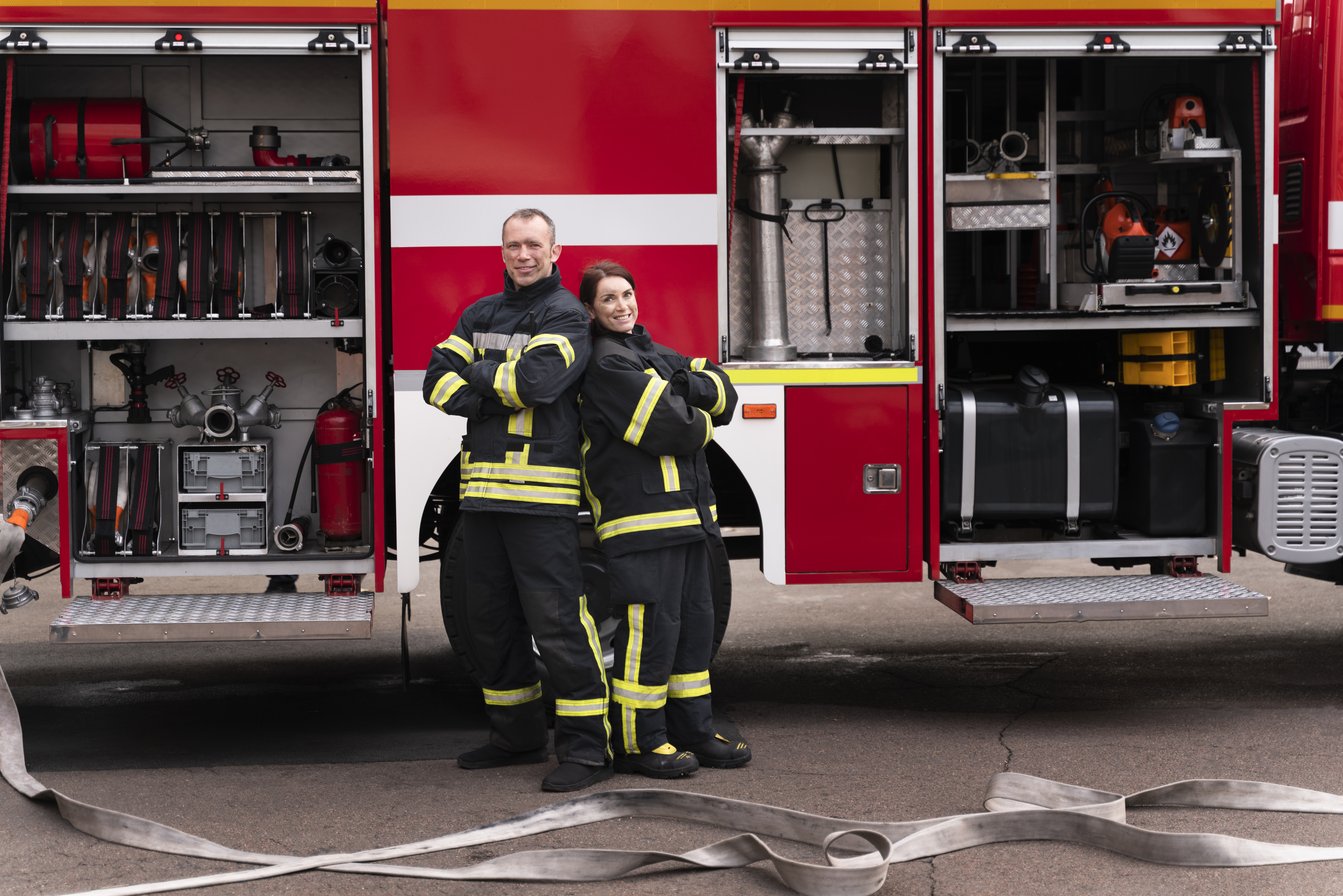


Blogs

Career Paths in Fire and Safety Engineering: Opportunities and Scope
Fire and Safety Engineering has emerged as a critical field dedicated to minimizing the risk of fire and enhancing emergency response mechanisms. This blog post explores various career paths in Fire and Safety Engineering, outlining the scope, required qualifications, and growth opportunities in this crucial discipline.
Career Paths in Fire and Safety Engineering: Opportunities and Scope
In today’s world of rapid industrialization and urbanization, the importance of safety cannot be overstated. From towering skyscrapers to expansive industrial plants, ensuring the safety of lives and property is a top priority. Fire and Safety Engineering has emerged as a critical field dedicated to minimizing the risk of fire and enhancing emergency response mechanisms. This blog post explores various career paths in Fire and Safety Engineering, outlining the scope, required qualifications, and growth opportunities in this crucial discipline.
What is Fire and Safety Engineering?
Fire and Safety Engineering is an interdisciplinary branch of engineering that deals with the prevention, detection, and mitigation of fire hazards. It combines principles of civil, mechanical, electrical, and chemical engineering with knowledge of safety regulations and human behaviour to protect people and assets from fire-related incidents.
Professionals in this field design fire protection systems, conduct risk assessments, create evacuation plans, and ensure compliance with national and international safety standards.
Why Choose a Career in Fire and Safety Engineering?
1. High Demand: With the growth of industrial and urban infrastructure, the demand for fire and safety professionals is at an all-time high.
2. Diverse Opportunities: Careers span across sectors like oil and gas, manufacturing, construction, aviation, healthcare, and government services.
3. Global Scope: Fire and safety engineers are in demand worldwide, offering opportunities to work abroad.
4. Fulfilling Work: Contributing to the protection of lives and property offers immense job satisfaction.
Educational Pathways and Qualifications
1. Diploma in Fire and Safety Engineering
A popular entry-level qualification, this 1-2 year program provides foundational knowledge in fire prevention, first aid, industrial safety, and hazard management. It is suitable for high school graduates looking to quickly enter the workforce.
2. Bachelor’s Degree (B.Sc or B.E/B.Tech in Fire and Safety Engineering)
This undergraduate program spans 3-4 years and includes in-depth training in fire dynamics, building codes, risk analysis, fire suppression systems, and emergency planning. It is ideal for those seeking professional recognition and long-term career growth.
3. Postgraduate Studies (M.E/M.Tech or M.Sc)
Advanced courses focus on research, system design, and management. They prepare graduates for leadership roles, consultancy, and teaching positions.
4. Certifications and Short-Term Courses
Numerous certifications like NEBOSH (UK), IOSH (UK), NFPA (USA), and OSHA (USA) enhance credibility and are often required for international jobs. These can be pursued online or through recognized institutions.
Top Career Paths in Fire and Safety Engineering
1. Fire Safety Officer
Role: Implement fire safety protocols, conduct drills, maintain fire equipment, and ensure compliance with safety regulations.
Industries: Construction, manufacturing, healthcare, government.
Skills Required: Knowledge of local safety laws, emergency response, equipment handling, and strong communication skills.
2. Safety Engineer
Role: Analyze workplace environments to identify potential hazards and implement control measures to ensure worker safety.
Industries: Oil & gas, chemical plants, automotive, power generation.
Skills Required: Risk assessment, hazard analysis, problem-solving, and regulatory compliance knowledge.
3. Fire Protection Engineer
Role: Design and develop systems such as sprinklers, alarms, and smoke control to prevent or mitigate fire damage.
Industries: Building and construction, infrastructure development, government agencies.
Skills Required: Engineering design, CAD software, building codes, and fire dynamics.
4. Health and Safety Manager
Role: Oversee the implementation of health and safety policies, conduct training sessions, and audit safety procedures.
Industries: Corporate offices, manufacturing plants, logistics companies.
Skills Required: Leadership, training, policy development, and compliance auditing.
5. Risk Management Consultant
Role: Provide expert advice to organizations on minimizing operational and environmental risks.
Industries: Insurance, consultancy firms, large enterprises.
Skills Required: Analytical skills, industry-specific knowledge, and strategic planning.
6. Industrial Hygienist
Role: Identify and control environmental factors in the workplace that may affect health and safety.
Industries: Chemical industries, pharmaceuticals, mining, heavy manufacturing.
Skills Required: Toxicology, environmental monitoring, industrial regulations.
7. Fire Investigator
Role: Determine the origin and cause of fires, collect evidence, and support legal proceedings.
Industries: Law enforcement, insurance, forensic science.
Skills Required: Forensic science, analytical thinking, attention to detail.
8. Emergency Response Coordinator
Role: Plan and coordinate responses to emergencies including fires, chemical spills, or natural disasters.
Industries: Government, disaster management agencies, NGOs.
Skills Required: Crisis management, leadership, communication, and logistics.
Growth Opportunities and Salary Outlook
In India
Entry-level professionals with a diploma can expect a monthly salary between INR 15,000 to INR 25,000. Graduates with a B.Tech or B.Sc can earn between INR 30,000 to INR 60,000 per month depending on the sector and experience. With certifications and experience, salaries can exceed INR 1,00,000 per month.
Abroad
Fire and safety engineers are well-compensated in countries like the UAE, Qatar, Australia, Canada, and the UK. Monthly salaries can range from USD 3,000 to USD 8,000 or more based on qualifications and the role.
Key Skills for Success in Fire and Safety Engineering
- Technical knowledge of fire prevention systems
- Familiarity with safety codes and legislation
- Strong observational and analytical skills
- Crisis management and quick decision-making
- Good communication and training skills
- Physical fitness and mental alertness
Challenges in the Field
While this career is rewarding, it comes with challenges:
- High-stress situations during emergencies
- Physical risk in hazardous environments
- Need for constant learning and certification renewal
- Managing regulatory compliance in diverse settings
Conclusion
Fire and Safety Engineering is not just a profession; it’s a responsibility that involves safeguarding lives and ensuring secure work environments. With a variety of roles available across multiple industries and global opportunities for advancement, it is a career worth considering for those passionate about safety and engineering. Whether you're just starting out or looking to specialize further, the field of fire and safety offers stability, respect, and the chance to make a significant impact on society.
For more such types of content, follow our social media profiles;
Let us help you find your Dream Job in Fire & Safety!
If you are finding suitable Fire Safety engineers for your organization, click below;
Click Here to find the Fire Safety Engineers for your organization!
